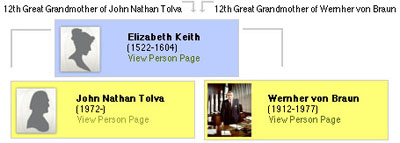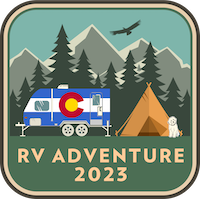The ultimate social network
It is said that researching family history is second only to scouring the web for porn in popularity. I’m not sure if that’s true, but I can see how it might be so. If ever there was a medium perfectly suited to establishing lineage and contact with unknown family it is the Internet.
I’ve always had a simmering interest in genealogy, but the sorry state of family tree applications never got me very excited. These were almost always legacy beasts that could import the archaic GEDCOM standard file format and do little more. Where these apps really failed was in areas of collaboration and visualization. What good is a family tree if you are the only person who can work on it? And, much thornier, how do you slice and dice such a fractal dataset so that it is actually useful?
In recent years Ancestry.com has stepped in and taken care of much of the problem. Ancestry is run by the Church of Latter Day Saints (the Mormons) as a commercial offshoot of their ginormous genealogical holdings. The site is strictly secular though and offers an amazing array of backend research services that turns one’s offline family tree into a portal to dozens of historical record repositories. Just upload (or enter) what you know and the site begins searching census records, immigration manifests, military archives — and the best of all, other people’s trees that link up with yours back in the mists of time. Depending on where you’re from you can flesh out your family rather easily. Just a few nights ago I actually got bored after taking my mom’s mom’s line back so far through the UK that my line proceeded through a reverse Norman invasion back to France in the 11th century. Goodness knows how far back the recorded lineage goes.
Perhaps the most entertaining feature of Ancestry.com is the “Find Famous Relatives” function, six-degrees of separation on steroids. Basically if you have a pretty fleshed-out tree (and especially if any branches of it stretch back through the UK), Ancestry returns a bewildering collection of well-known relatives. For instance, I am the seventh cousin twice removed from William Faulker. This means ol’ Will and I share the same great-great-great-great-great-great-grandparent, though this person is two generations off from me. (Twice removed is what you are to the first cousins of your grandparents.) Not exactly thrilling. Ah, but there is thrill. I am the twelfth direct cousin of Werner Von Braun. This means we share the same great-grandmother12. Let’s set aside that Herr Von Braun developed the V2 rocket for the Nazis and instead focus on his role as the father of the American space program, OK?

Even before I found Ancestry.com the web has been an inadvertent boon to family-finding. All you really have to do is get your name indexed by Google and it is off to the races. In the last six years I’ve been contacted by dozens of people with similar surnames or lineages who think they might be family. There’s Roberto di Tolve, a citizen and resident of Holland who was born in Barile, Italy and who is now a close family friend. Roberto travelled to Barile with my family and I in 2003. He’ll be back with us this July. There’s Stephanie Saville of the Paternoster line who traces her line to the famous winemakers of Barile. Most recently there’s Mike Botte who lives in NY and who grew up in Barile. (My great-grandmother is a Botte.) This may be the closest to true relation that’s been established simply from an e-mail. Mike’s cousin is the current mayor of Barile, who I will meet in July; so we’ll know soon. Much more on Mike and his extraordinary brother John in a future post.
So, ok, you get it. Online genealogy can be fun. But I am already seeing the underside of it. For one, it really does make you think hard about what family is. Genealogy is really about bloodlines, not family in the broader sense which includes step-relatives, foster parents, and illegitimacy. It charts gene propagation not family structure. In this way it is conceptually similar to The Genographic Project.
Also, you do come across people who treat genealogy with the same trainspotting zeal as online discographers. For example, finding a limited pressing of a Rolling Stones LP with a typo in the liner notes makes it more valuable; finding a misspelling on an emigration document might be a useful clue — but it might also be (and usually is) merely a massive pain in the ass. There’s a kind of genealogy buff I’ve come across that doesn’t really get this distinction.
One response to “The ultimate social network”
Hi, I’m John Tolva!
Mission Elapsed Time: 20:00:21:06:42:40
I went back through it this blog (and my Flickr account) on its 20th anniversary, retracing digital footprints made on what feels like a different planet. Here are some highlights.
The Terror Tourist
A roughly monthly exploration of places in horror fiction — real or imagined, geographical or psychological — culled from The Heavy Leather Horror Show.
Subscribe to the podcast or the email newsletter or just read through the archives posted here.
The Ampcamper
How I hauled myself, two teens, an 80 lb dog, and a whole load of crap 4000+ miles across six states in twenty days using an electric vehicle. And survived to tell the tale.
Latest Photos
Marginalia
Stuff I’ve found interesting from around the web lately.














It is true that for a long while (though I don’t know about the last 10 years) the CIA recruited folks from within the Mormon church abroad to be operative field contacts (not actual agents) since they had access to incredibly detailed files on everyone. I made fast friends with someone from Ecuador when I lived there for a few years in the early 90’s, and he was recruited after a few missions abroad and finally making it to some level where one gains admittance to the actual Church in Salt Lake City. Anyway, it was completely by surprise that I surmised he was since I joked about it based on his idiosyncratic character. It turned out he actually was — he confessed to me all sorts of private information regarding my girlfriend and her family that no one could possibly know.